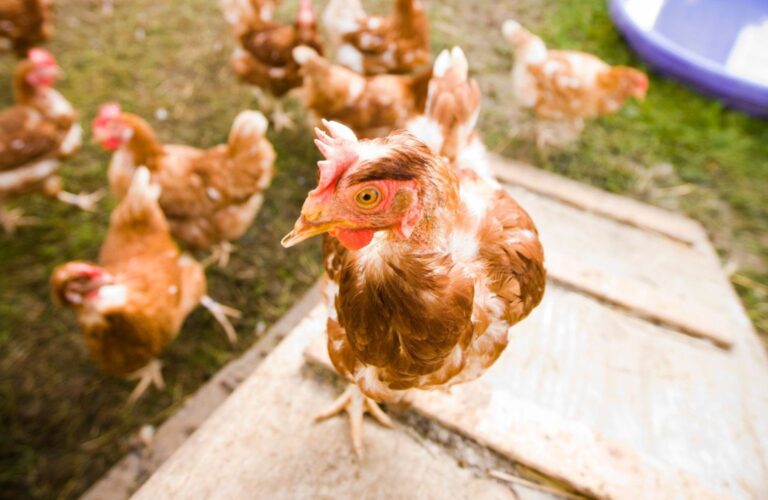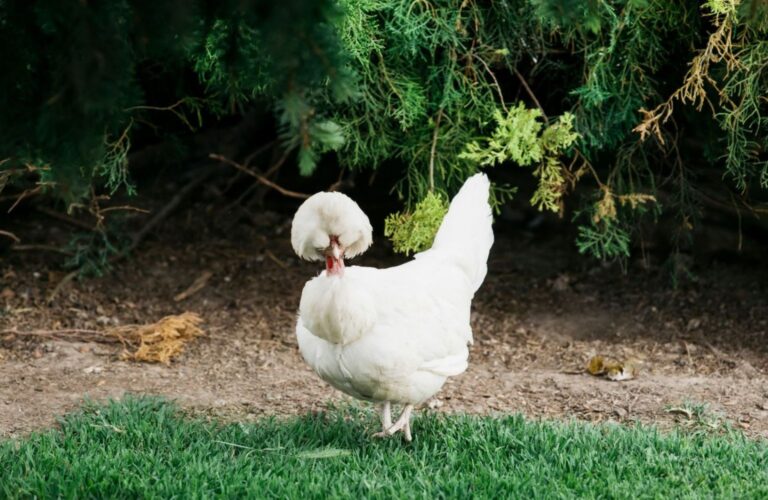Is cleaning a chicken coop really that important? Neglecting to clean out your chicken coop regularly puts your flock at risk of infection. People who don’t clean out their wooden chicken coops regularly can lose chickens to diseases that could easily be prevented with regular cleaning. Keeping your chicken coop clean will reduce the chances of spreading germs and help you keep your flock healthy.
If you want some more tips and information about how to raise backyard chickens, check out this article.
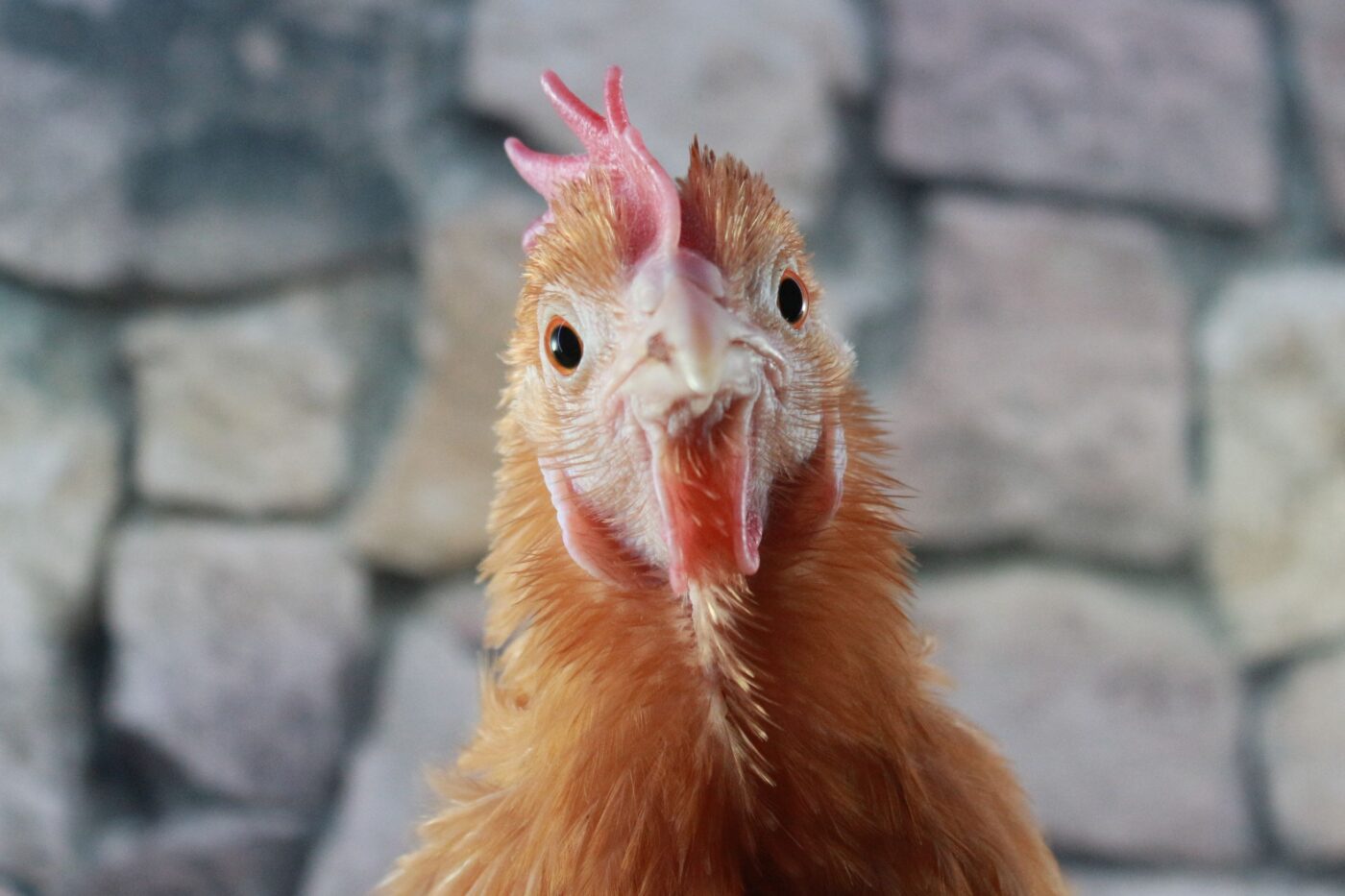
Cleaning the floors, getting rid of any mold and litter, cleaning the nesting boxes, and changing your chicken’s bedding will kill the germs and reduce the possibility of spreading germs inside your chicken coop.
If you don’t clean your chicken coop regularly, bacteria and other diseases can grow in the coop. This can make your chickens sick and could even make you or your family members sick from taking care of the chickens. So, this is why it’s important to clean your chicken coop regularly. Here’s a step-by-step guide on cleaning a chicken coop and learning how to keep your chickens healthy and happy.
6 Steps To Clean and Disinfect Your Chicken Coop
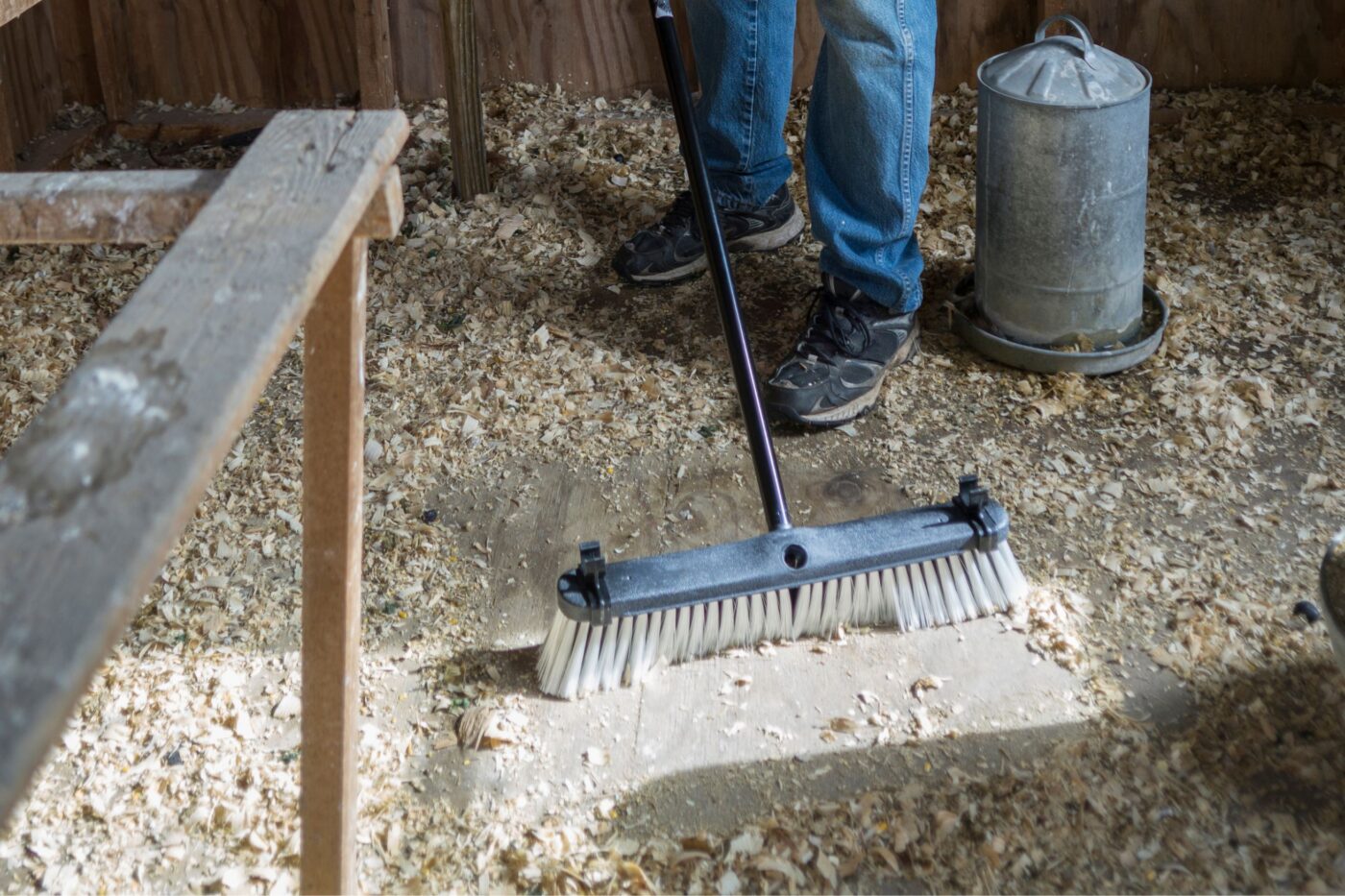
Step 1: Take the chickens out of your coop. Put them in a temporary enclosure
Step 2:Clear out every removable thing of the coop. This includes feeders, drinkers, perches, and nesting box trays. Depending on the size of your coop, this could take some time. After you’ve got rid of all the bedding, scrape out all the chicken feces, cobwebs, dust, dirt, and any other materials in the coop. Using a pair of gloves and a face mask will help you from getting any dust or dirt getting into your body, especially if you have allergies.
Step 3: Grab your hose and spray the enclosure down. You’ll want to remove all dust and debris leftover from scraping and shoveling. If there is still debris left over after you spray, you may want to repeat step one. If you want, you can also use boiling water in the cleaning process to get rid of any mites in your coop.
Step 4: Disinfect the nesting boxes and the coop. Try to use a natural cleaning agent like vinegar to disinfect the chicken nesting boxes and coop. Please do not use bleach, it can be very toxic to your chickens. Mix equal parts of vinegar and water to create a cleaning solution and mop up your coop for an all-natural cleaning. Use this cleaning solution on your chicken feeders and drinkers, then put them under the sun to dry completely.
Step 5: Let the coop and nest boxes air dry. This will help with the vinegar smell, and the sunlight will help with the disinfection process.
Step 6: It’s time to move everything back in. Put some fresh bedding such as wood shavings or straw bedding products on the floor of the coop, and then put the dried feeders and drinkers back. Now you will be able to move your chickens back into their home. The last and most important part is, don’t forget to wash your hands!
How often you should be cleaning a chicken coop?
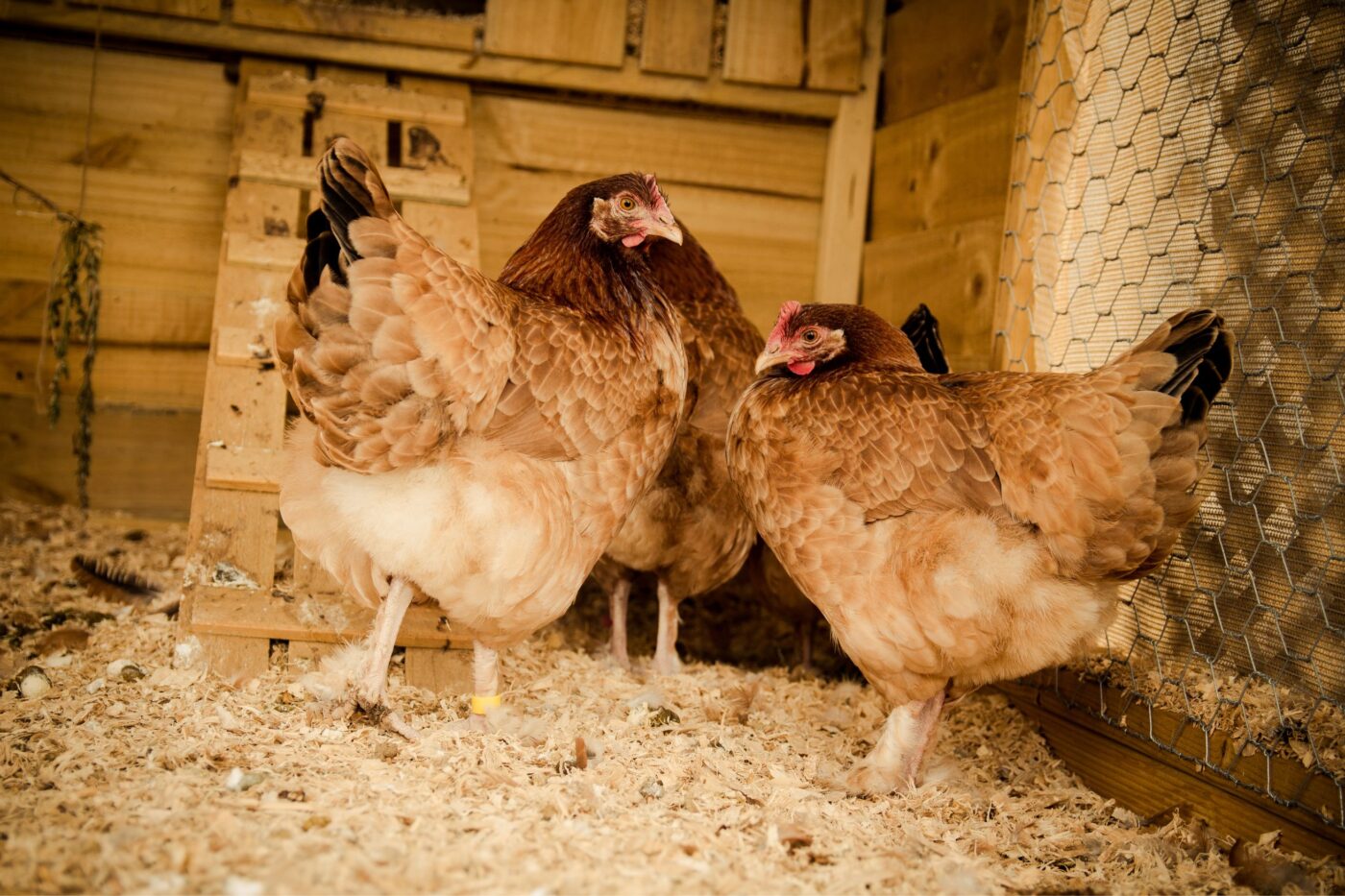
You should provide fresh food and fresh water every day, and you should clean the bedding out once a week or once a month(the deeper the bedding layer the less often you have to clean it out). It’s best practice to do a total clean-out at least twice a year. It’s not always fun to clean your coop, but it’s one of the most important tasks that have to get done. Cleaning a chicken coop can vary depending on the coop size, layout, and how many chickens you have. The best time to clean your coop is when you begin to see dust, dirt, cobwebs, dirty chicken coop bedding, dirty nesting material, and built-up chicken feces.
Why should you clean your coop?

One of the illnesses you can get from not cleaning your backyard chicken coop is Salmonella. Most infections happen when someone is handling their chickens and the chicken’s fecal matter gets on their hand, and then they accidentally ingest it when they touch their mouth. You could avoid this illness by cleaning the chicken coop.
It makes my chickens feel better!
“Even if you don’t get a new flock of birds this year, it’s a good idea to thoroughly clean out your coop on occasion. I like to do a super deep clean each spring. It just makes me feel better, so I therefore assume it makes my chickens feel better. I have no idea if that’s logical, but I’m sticking with it.”
– Jill Winger, the Prairie Homestead
3 Methods to Keep Your Chicken Coop Clean
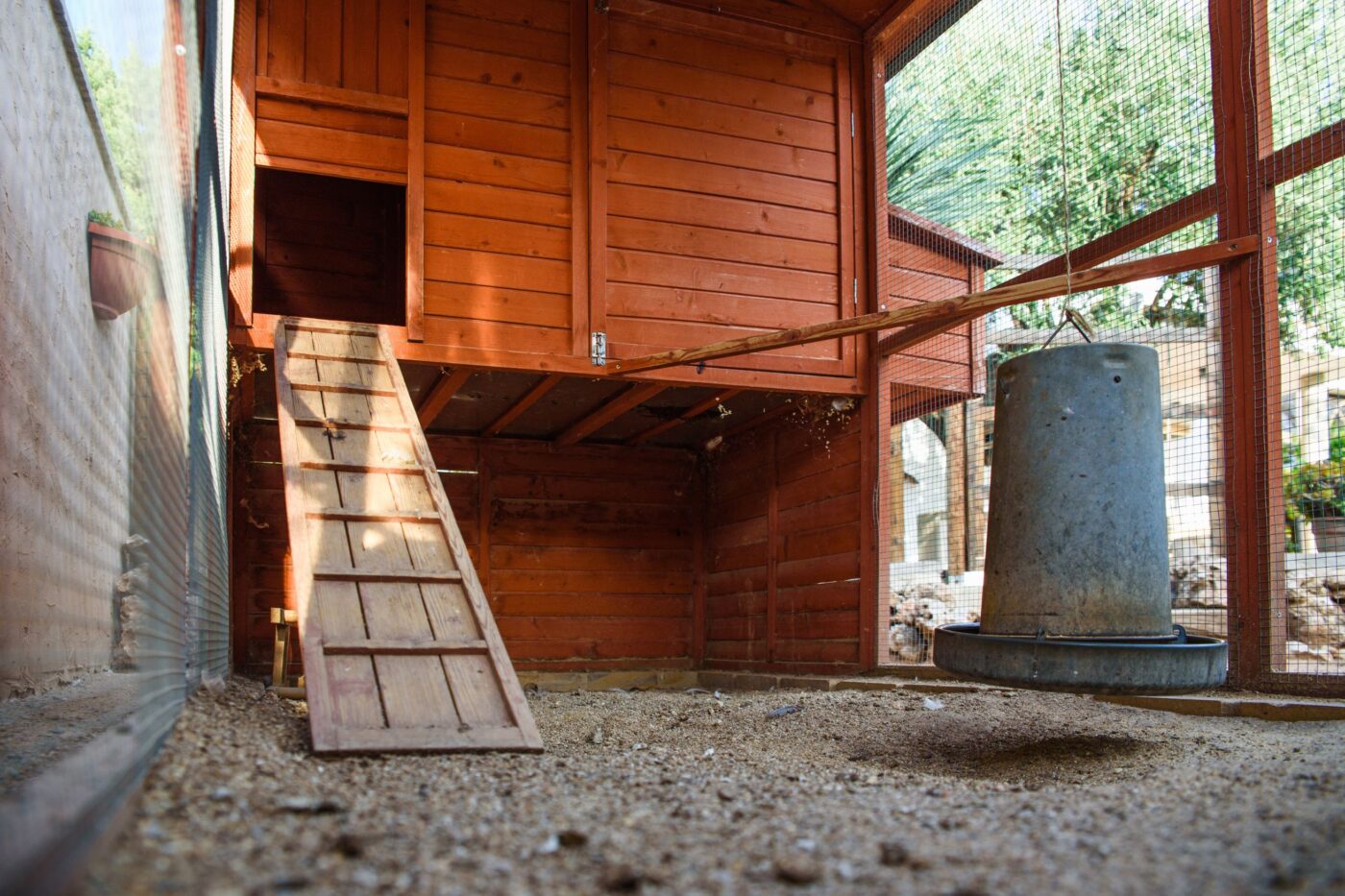
Keeping your coop well-maintained will help to keep your flock safe and healthy. According to other chicken coop owners, a well-maintained chicken coop could provide more eggs. There are 3 commonly used methods to keep your chicken coop clean.
The first method of cleaning a chicken coop is the tarp method; this method works by laying down a tarp on your coop floor and covering it with your choice of bedding. When it’s time to change, fold the tarp and take it to your waste pile. Clean everything off of the tarp, be sure to disinfect it before laying it back down. This method is good for saving time, and keeping a clean coop and dry floor.
The second method is the Deep litter method will provide extra warmth for your chickens. This method starts with a thick base and allows your litter to build up compost on the floor. When the litter and manure compost on the floor of your coop, it provides warmth to chickens. This method also allows more time to go by between cleaning out the bedding, so you don’t have to clean it once a week.
The third method is cleaning a chicken coop with vinegar and water mixture. It is a safe and organic way to disinfect your coop. According to chicken farmers, vinegar also could increase egg-laying and help maintain general good health. The smell dissipates quickly and leaves the whole coop smelling better.
Should You Wash Your Eggs?
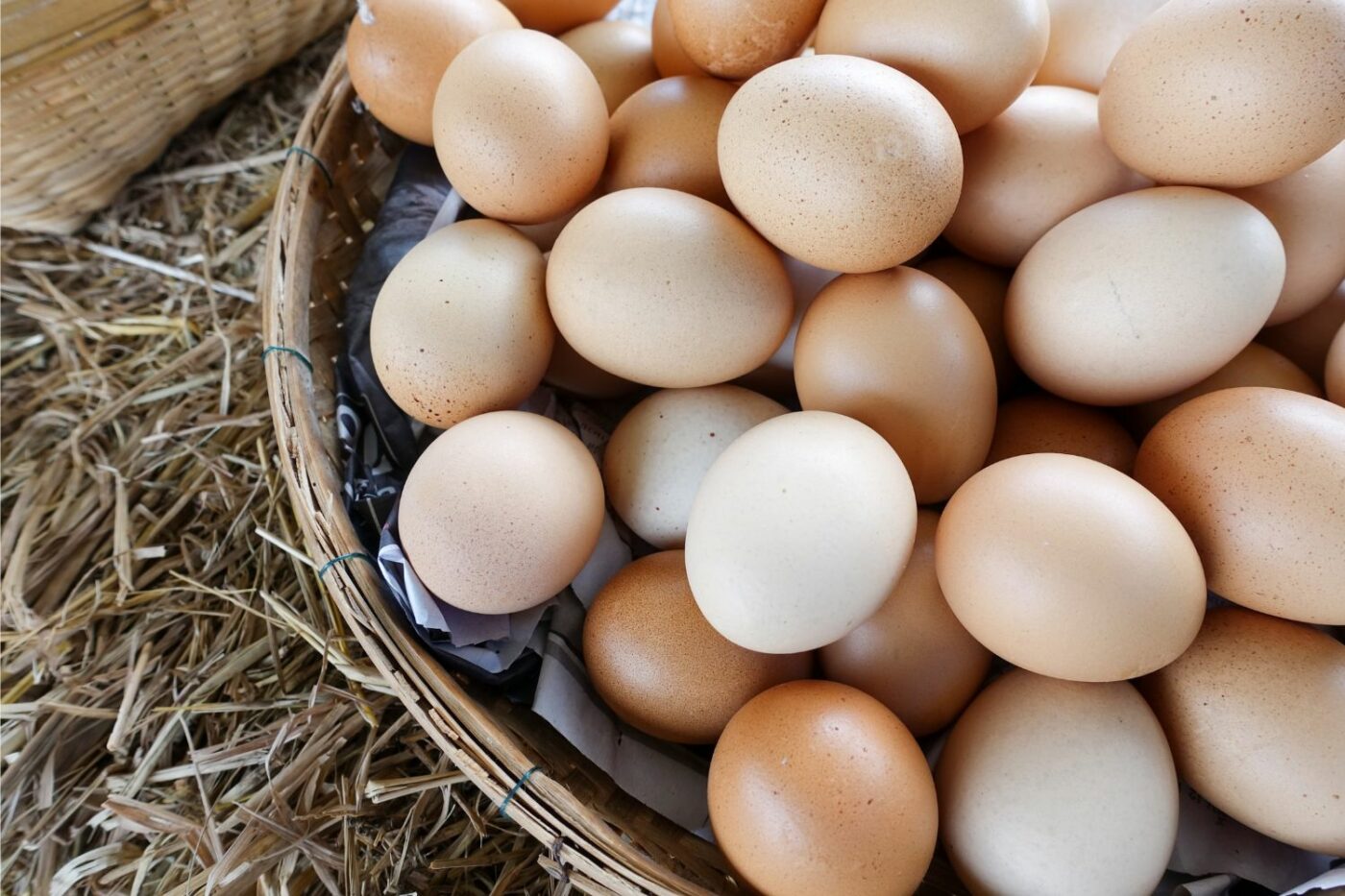
No, You should not wash your eggs. There is a natural antibacterial coating on the egg (when the chicken lays it) called the “bloom”. Washing the eggs with water will remove the bloom and encourage bacterial growth on the eggs. The only time you should clean your eggs with water is if there is chicken feces on the eggs when collected. The best way to clean your eggs is dry cleaning if they are not soiled. For this method, you could use something dry and slightly abrasive such as a sanding sponge, loofah, fine sandpaper, or abrasive sponge until the egg is clean. One of the bacteria you want to avoid having on your egg is Salmonella, which can lead to food poisoning.
Some symptoms of salmonella are nausea and vomiting, blood in the stool, fever, chills, and abdominal pain. The only risk of getting Salmonella from an egg is if the bacteria is present on the eggshell, and you intend on eating the egg in a raw preparation. The easiest way to ensure that your eggs are clean is to keep the nesting boxes clean, you should check the nest boxes often, and remove the eggs as soon as you spot them.
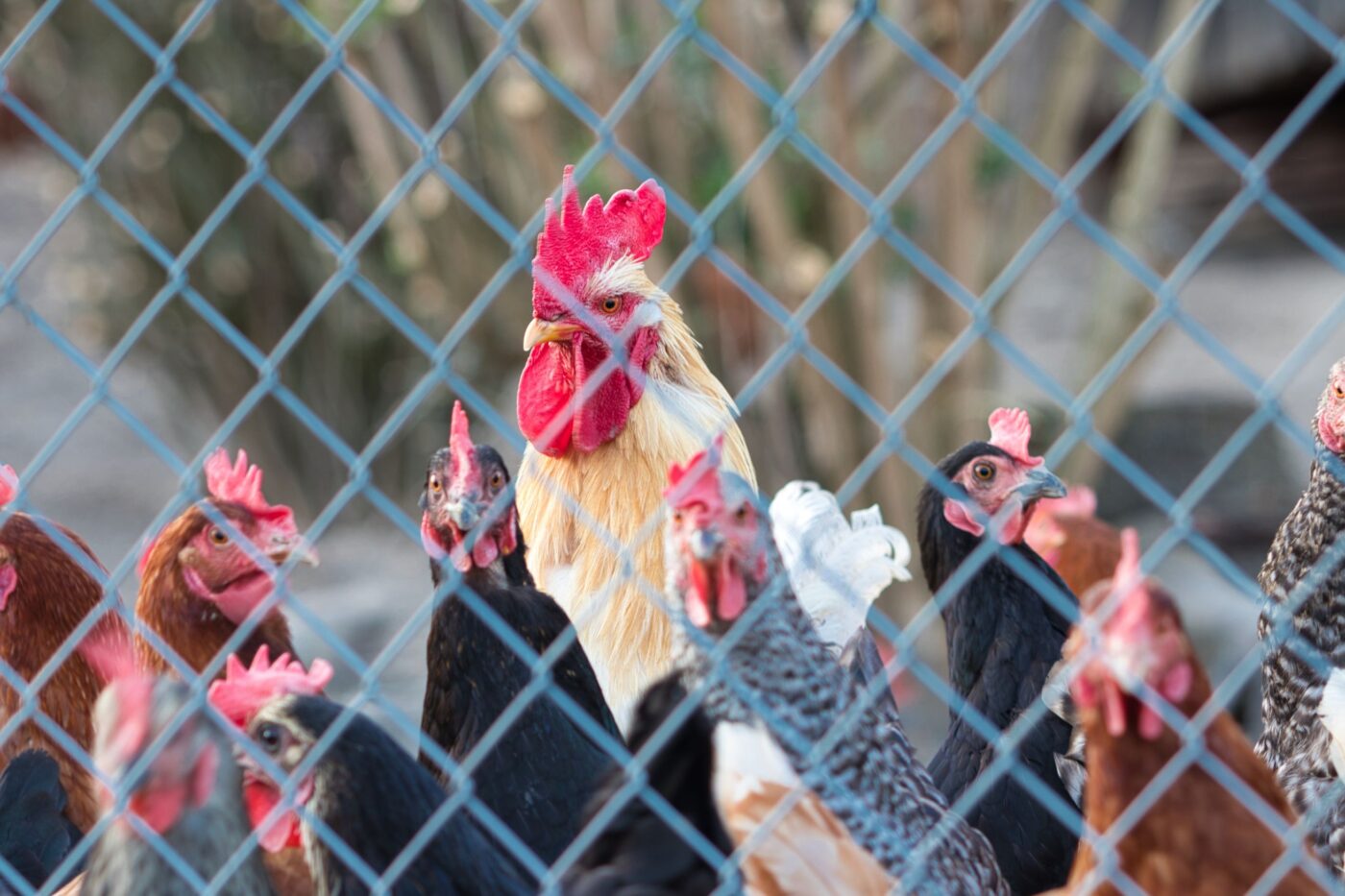
Keeping chickens in the backyard has become more popular in recent years, and other than cleaning a chicken coop, there aren’t any big downsides to raising chickens. They are by far the easiest farm animals to take care of. You should clean and disinfect your chicken coop because a clean chicken coop means a happy flock and a happy flock means a happy chicken owner. Don’t be a chicken when it comes to cleaning a chicken coop. If you have ducks instead of chickens, read this duck coop cleaning guide!
Get your Dream Chicken Coop with Hen House Collection

Looking for the Coop of your dreams? The Hen House Collection offers A-Frame Chicken Coops and other styles that can be customized for your needs and will give your hens a safe and beautiful place to lay their eggs and live. Simply contact us or find a dealer to get one step closer to the perfect small chicken coop or large chicken coop!
Check out this video to see one of our happy customers and their story!


